Hyperpigmentation, the darkening of an area of skin, is the silent storyteller of our complexion’s past, recounting tales of sunny sojourns, hormonal shifts, and, sometimes, inflammatory skin sagas. Take Jane, a graphic designer with a penchant for beach holidays. Post-vacation, she noticed a constellation of dark spots across her cheekbones—souvenirs from the sun. Similarly, after her pregnancy, she observed patches of discoloration, later learning they were melasma, a form of hormonal hyperpigmentation. Such is the plight of many who find themselves in a skin scenario seeking a return to their once even-toned visage.
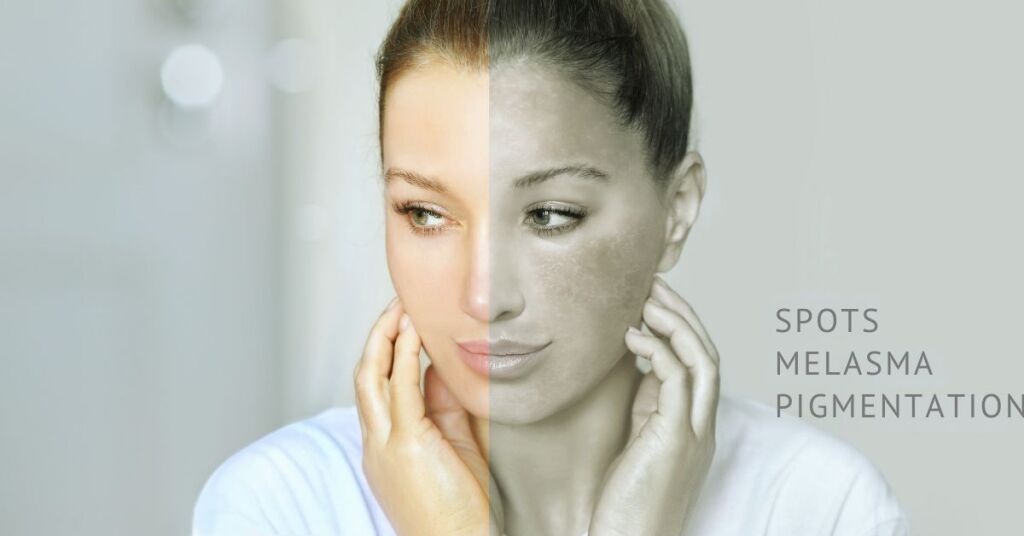
Crafting a regimen to fade these unwelcome marks doesn’t require a magic wand—just a discerning eye for potent ingredients that dermatologists champion for their lightning prowess. Below, we unravel the best skincare ingredients to help send hyperpigmentation packing and restore your skin’s naturally radiant narrative.
1. Vitamin C: The Brightening Powerhouse
Vitamin C is a skincare superstar regarding brightening properties and evening-out skin tone. This potent antioxidant not only inhibits the enzyme tyrosinase, which is responsible for the production of melanin, but also helps reduce the appearance of dark spots and sun damage. Topical Vitamin C serums, especially those containing L-ascorbic acid, effectively diminish hyperpigmentation and enhance overall skin radiance.
2. Hydroquinone: The Classic Pigment Reducer
Hydroquinone has long been used as a gold standard ingredient for treating hyperpigmentation. It works by decreasing the production and increasing the degradation of melanin pigments in the skin. While highly effective, it’s important to use hydroquinone under the guidance of a dermatologist, as it can be potent and isn’t suitable for all skin types.
3. Niacinamide: The Versatile Vitamin
Niacinamide, or Vitamin B3, has gained prominence for its skin-brightening properties. It inhibits the transfer of pigment within the skin, which can help reduce dark spots and even skin tone. It’s also well-loved for its anti-inflammatory and barrier-strengthening properties, which makes it an excellent choice for sensitive skin types.
4. Azelaic Acid: The Gentle Exfoliant
Azelaic acid is another effective ingredient for treating hyperpigmentation. It helps inhibit melanin production and possesses anti-inflammatory and antimicrobial properties, making it ideal for those with acne-related hyperpigmentation. It’s less irritating than other acids, making it a suitable choice for sensitive skin.
5. Alpha Hydroxy Acids (AHAs): The Skin Renewers
AHAs, particularly glycolic acid and lactic acid are excellent for exfoliating the skin’s surface and promoting cell turnover. They help remove the outer layer of dead skin cells they help to diminish dark spots and improve skin texture. Regular use of AHA-based products can lead to brighter and more even-toned skin.
6. Kojic Acid: The Natural Brightener
It derives from fungi, kojic acid is effective in treating pigmentation issues. It inhibits the production of tyrosinase. Kojic acid is often found in combination with other ingredients, like glycolic acid, which helps treat hyperpigmentation while minimizing potential irritation.
7. Retinoids: The Texture Improvers
Retinoids, including retinol and prescription-strength tretinoin, are beneficial for anti-aging and hyperpigmentation. They work by accelerating skin renewal, promoting collagen production, and dispersing melanin granules, which reduces the appearance of dark spots.
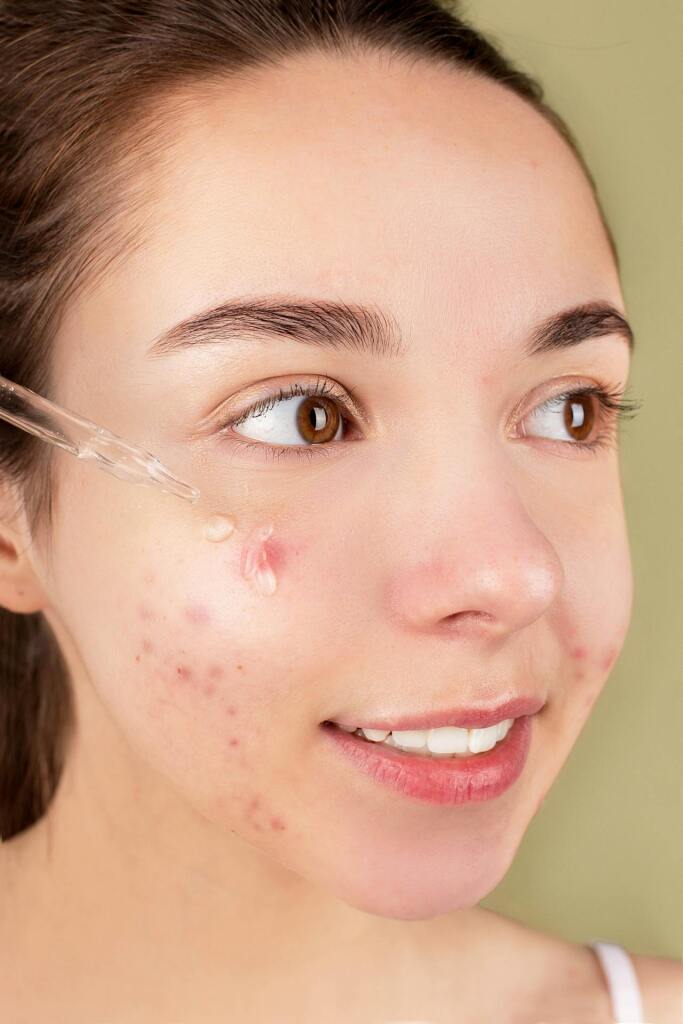
8. Arbutin: The Safe Brightening Agent
Arbutin, particularly alpha-arbutin, is a natural derivative of hydroquinone. It offers a gentler approach to skin brightening, working by slowly releasing hydroquinone, thereby inhibiting melanin production. It’s suitable for those who have sensitive skin or are looking for a natural alternative to hydroquinone.
9. Licorice Extract: The Soothing Brightener
Licorice extract is known for its skin-soothing properties and is another excellent ingredient for tackling hyperpigmentation. It contains compounds like glabridin and liquiritin, which help in dispersing and reducing melanin concentration in the skin. Licorice extract is gentle, making it suitable for sensitive skin types and those looking to use natural skin-lightening alternatives.
10. Tranexamic Acid: The Pigment Fighter
Tranexamic acid, a newer player in the skincare game, has shown promising results in the treatment of hyperpigmentation. Originally used to treat heavy bleeding, this ingredient works wonders on dark spots and melasma by inhibiting melanin synthesis and reducing inflammation. It’s particularly effective with other ingredients like Vitamin C or niacinamide.
11. Ferulic Acid: The Enhancer
Ferulic acid, an antioxidant, enhances the stability and efficacy of other skincare ingredients like Vitamin C and E. While not a direct treatment for hyperpigmentation, it supports other ingredients in their fight against free radicals and skin damage, which can lead to uneven skin tone.
12. Chemical Peels: Professional Exfoliation
Chemical peels using glycolic acid, lactic acid, or trichloroacetic acid (TCA) can effectively treat hyperpigmentation. These professional treatments, which qualified skincare professionals should do, work by removing the top layer of the skin which reduces the appearance of dark spots.
13. Mandelic Acid: The Gentle Exfoliator
Mandelic acid, a type of AHA derived from bitter almonds, is gaining popularity for its gentle yet practical approach to treating hyperpigmentation. It’s particularly suitable for sensitive skin types and darker skin tones. Mandelic acid helps accelerate cell turnover and reduce the appearance of dark spots without the harshness that can sometimes accompany other AHAs.
14. Salicylic Acid: For Acne-Related Pigmentation
Salicylic acid, a beta-hydroxy acid (BHA), is particularly effective for those dealing with hyperpigmentation caused by acne. It exfoliates the skin, unclogs pores, and reduces inflammation. Its ability to penetrate deeply into the skin makes it a valuable ingredient for preventing and treating post-inflammatory hyperpigmentation.
15. Mulberry Extract: The Natural Skin Lightener
Mulberry extract, rich in antioxidants, has been shown to have skin-lightening properties. It contains compounds that inhibit tyrosinase, the enzyme responsible for melanin production. This natural ingredient is an excellent option for those seeking a gentler approach to reducing hyperpigmentation.
16. Papaya Enzymes: The Natural Exfoliant
Papaya enzymes, like papain, are natural exfoliants that can help treat hyperpigmentation. These enzymes gently break down the proteins in the dead skin cells, promoting a smoother, more even-toned complexion. Papaya enzymes are an excellent choice for people with sensitive skin or those who prefer natural skincare ingredients.
17. Sea Buckthorn Oil: The Omega-Rich Oil
Sea buckthorn oil, rich in Omega-7 and Omega-3 fatty acids, effectively reduces hyperpigmentation. This oil nourishes and heals the skin, helping to fade dark spots improving overall skin health.
18. Vitamin E: The Protective Antioxidant
Vitamin E is a powerful antioxidant that helps in skin healing and rejuvenation. Combined with Vitamin C, it can provide significant protection against sun damage and help reduce hyperpigmentation’s visibility. Vitamin E is particularly beneficial for its moisturizing and healing properties, making it a great addition to any skincare routine focused on evening-out skin tone.
19. Prebiotics and Probiotics: For a Balanced Skin Microbiome
Emerging research suggests that the health of our skin microbiome can impact the appearance of hyperpigmentation. Prebiotics and probiotics can help balance the skin’s microbiome, reducing inflammation and improving uneven skin tone.
20. Sunscreen: The Indispensable Shield
No hyperpigmentation routine is complete without the mention of sunscreen. Sun exposure can exacerbate hyperpigmentation, making a broad-spectrum SPF a non-negotiable final step in your skincare routine.
Tailoring Your Skincare Narrative

Before embarking on your quest to even out your skin tone, it’s essential to understand the type of hyperpigmentation you’re dealing with. Ingredients can be combined—for instance, Vitamin C in the morning and retinol at night—but caution is advised to prevent irritation. Always introduce new products slowly and one at a time, so if your skin reacts poorly, you’ll know the culprit.
Moreover, patience is the key. Results won’t appear overnight; consistency is your faithful companion on this journey. Remember, Jane didn’t see improvements for several weeks, but with diligence, her skin’s story evolved from spotted memories to a tale of radiant revival.
Embracing Your Unique Skin Story
Whether combating a tan from your last beach holiday, fading the remnants of acne battles past, or balancing out hormonal influences, these ingredients are the scribes rewriting your skin’s story to one of luminous clarity. Always consult a skincare professional to curate a regimen tailored to your skin’s specific needs, and bear in mind that the beauty of your skin’s tale lies in its unique narrative—spots, shades, and all.
Embracing a Holistic Approach
While topical treatments are important in managing hyperpigmentation, a holistic approach that includes a healthy diet, adequate hydration, and lifestyle changes can also make a significant difference. Foods rich in antioxidants and Omega-3 fatty acids can promote skin health and complement your skincare routine.
Combining Best Ingredients for Maximum Effect
Often, a combination of these ingredients yields the best results in treating hyperpigmentation. For instance, using Vitamin C in the morning for its antioxidant properties and a retinoid in the evening for cell turnover can be more effective than using either ingredient alone.
Safety and Skin Health
While treating hyperpigmentation, it’s crucial to prioritize skin health. Always use sun protection, as exposure to UV rays can worsen hyperpigmentation. Additionally, be mindful of not overdoing it with potent ingredients, as this can lead to irritation and skin damage. It’s often beneficial to introduce new treatments gradually and monitor how your skin reacts.
Dealing with hyperpigmentation requires a multifaceted approach. By incorporating a combination of these effective ingredients into your skincare regimen, you can significantly improve the appearance of dark spots and achieve a brighter, more even complexion. Remember, the key to success is consistency, patience, and tailoring your skincare to your specific skin needs. With the right approach, you can unveil the radiant, healthy skin that reflects your inner beauty.


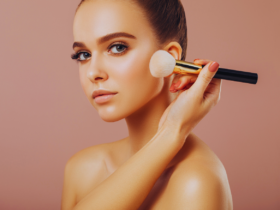
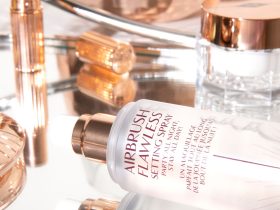

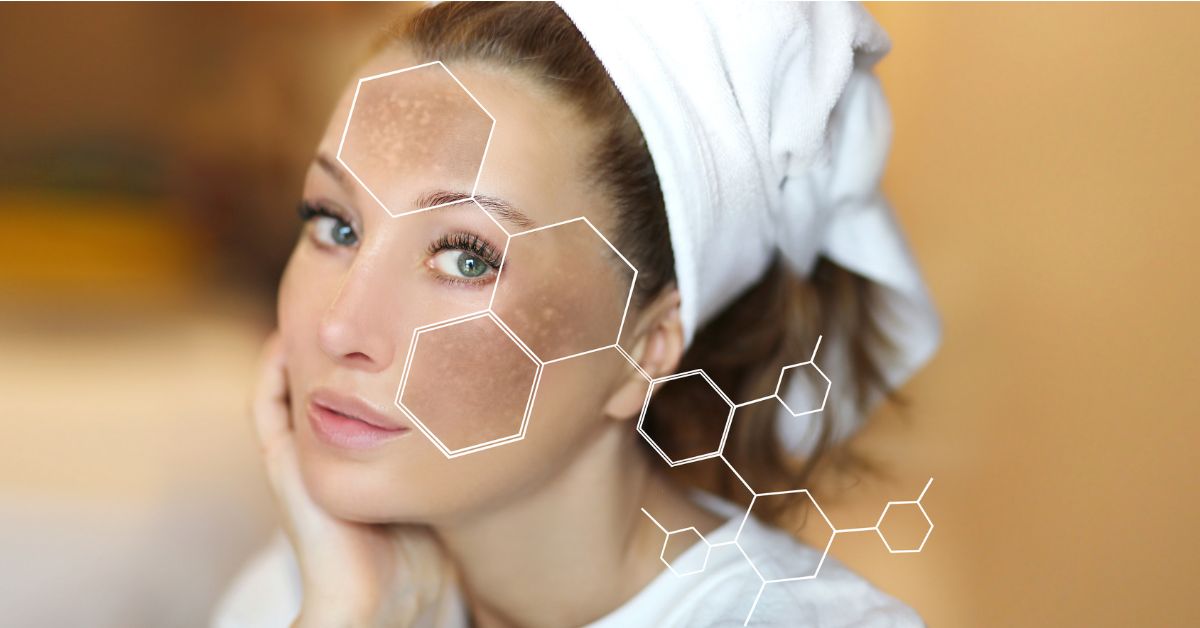


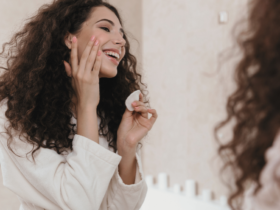
3 Comments